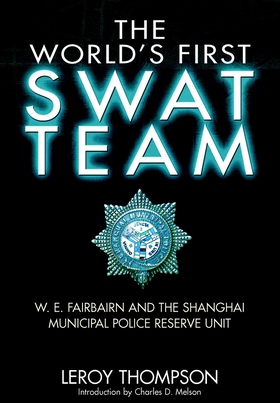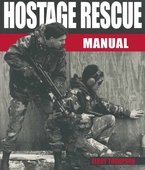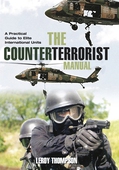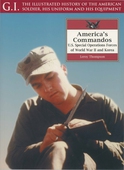
Lägg till önskelistan
The World’s First SWAT Team e-bok
Pris
115 kr
In turbulent Shanghai in the years between the World Wars, the International Settlement was a mercantile powerhouse that faced unrest from Communist labor unions, criminal gangs, spies, political agitators, armed kidnappers and assassins. Adjoining the Settlement were the French Concession and the Chinese city, both hotbeds of intrigue and crime themselves. Called the most sinful in the world, the Settlement relied on its police: the Shanghai Municipal Police, one of the most advanced forces ...
E-Bok
115 kr
Pris
Förlag
Pen and Sword
Utgiven
15 Februari 2021
Längd
208 sidor
Genrer
Historia & Arkeologi, Språk & Ordböcker, Fackböcker
Språk
English
Format
epub
Kopieringsskydd
Vattenmärkt
ISBN
9781783034376
In turbulent Shanghai in the years between the World Wars, the International Settlement was a mercantile powerhouse that faced unrest from Communist labor unions, criminal gangs, spies, political agitators, armed kidnappers and assassins. Adjoining the Settlement were the French Concession and the Chinese city, both hotbeds of intrigue and crime themselves. Called the most sinful in the world, the Settlement relied on its police: the Shanghai Municipal Police, one of the most advanced forces in the world.
After an incident in 1926 when the police fired upon demonstrators, which resulted in unrest and strikes, W. E. Fairbairn was charged with forming a specialized unit to deal with riots and armed encounters. The resulting Reserve Unit became the prototype for future SWAT teams, as it developed tactics for using snipers in barricade and hostage incidents, techniques for use of the submachine gun during raids, hostage rescue tactics, aggressive riot-dispersal tactics and various other tactical innovations. Out of the experiences of the unit came many of the techniques later taught by W. E. Fairbairn, E. A. Sykes, Pat O'Neill and others to the Commandos, Rangers, SOE, OSS, 1st Special Service Force and other Second World War elite units. Those same techniques still resonate today with special forces and police tactical units.







